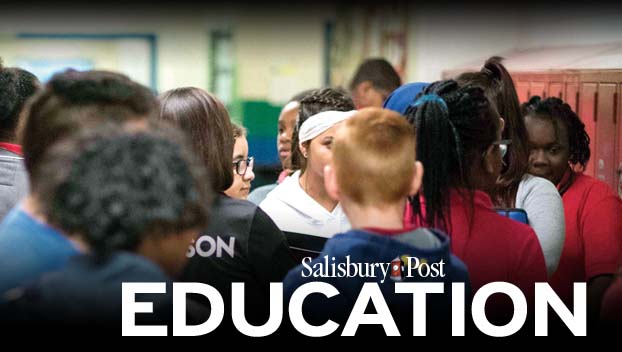Students still on the hook for standardized tests
Published 12:00 am Sunday, April 25, 2021
SALISBURY — While the pandemic stopped standardized tests once, COVID-19 won’t stop them a second time.
In March, a federal waiver took some of the pressure off the state to produce school report cards and identify public education institutions, including districts and schools, as low-performing. These requirements are also enshrined in state law, but a bill, Senate Bill 654, is on the table to waive those requirements on the state level as well.
The last movement on that bill was April 13 when it was sent to the Education and Higher Education Committee where it is awaiting being sent to the Rules Committee.
Excluded from the federal waivers is total exemption from taking the tests, called end-of-grade or end-of-course tests. These tests have been standardized and were administered to public school students for decades — until last year when they were waived in their entirety amid the pandemic.
Every student this year is required to take the tests. Though, the federal waiver removed the 95% rule, which requires districts to test at least 95% of students in public schools. Virtual students are among the students who will be asked to take tests in person. In Rowan-Salisbury Schools, that means showing up to facilities to take their exams on Wednesdays during the testing period, when the regular students will not be in the building.
Tammy Howard, accountability services director for the N.C. Department of Public Instruction, said the state requires the tests to make up 20% of high school students’ final grades.
This year, students across the state have spent time in a mixture of virtual and in-person learning, and local education agencies are anticipating learning loss because of the unusual circumstances.
“Some people really want to take these and think they will score well because they have been doing a lot of good instruction. We don’t know. It’s not that we don’t think they’re going to do well, but we just don’t know,” said David Blattner, RSS chief technology officer and interim accountability director.
Blattner said the district uses data from the test, but it is not its only source of information on how students are performing. If the state waives its accountability measures as well, Blattner said, the data will mostly be useful as a tool for districts to understand what areas need support.
“We tend to always think about test data as accountability because it is so evident and public, particularly with school performance grades, but test data has always been used to target resources and provide support,” Howard said.
Howard said districts and schools have other ways to assess students as well, including their daily interactions with teachers.
“It’s one piece in a mosaic of assessments we use to make sure our students are where they need to be or get them where they need to go,” Blattner said.
He said the standardized tests are classified as “lagging data” — meaning the district gets results after a student has already finished a grade level. It is mostly useful as a way to look at improving a program rather than a tool to help students during the current term.
Last year, there were no school report cards and no standardized tests whatsoever. At the point they would have been administered, tests were waived across the board. Students in Rowan-Salisbury Schools were home for all-virtual learning as the country grappled with how to respond to the early days of the pandemic.
If the state waives requirements as well, it will create a two-year gap in those assessments and changes to state-identified low-performing schools. The latest assessment for RSS for the 2018-2019 year identified 15 schools as low-performing.
This number is concerning for the district because it has crept up slightly in the past few years and is nearing the 50% threshold for a district that currently has 37 schools. If that number climbs, local educators are worried about RSS’ renewal status when it comes up for state review at the end of the 2022-2023 school year.
The State Board of Education can end renewal if a majority of the district’s schools have been labeled as low-performing in the two years prior. Lowering that number is a priority for RSS, said Superintendent Tony Watlington.
The district is using renewal to move toward other forms of assessment that fit in with its shift toward a competency-based education model that would use short, mastery-based assessments throughout the year. It is still responsible for administering standardized tests.
SB 654, if passed as is, would continue a freeze on the status of low-performing schools from last year, not adding or removing any schools from the list.
On one hand, Blattner said, it could be negative for districts that could have stood to lower the number of low-performing schools, but given the circumstances it would be more fair to everyone.
Howard said it is important for the state to have a valid year of data before it makes new assessments. An unfortunate possibility as a result of the last two school years is the specter of schools not getting needed resources because of a lack of data.






